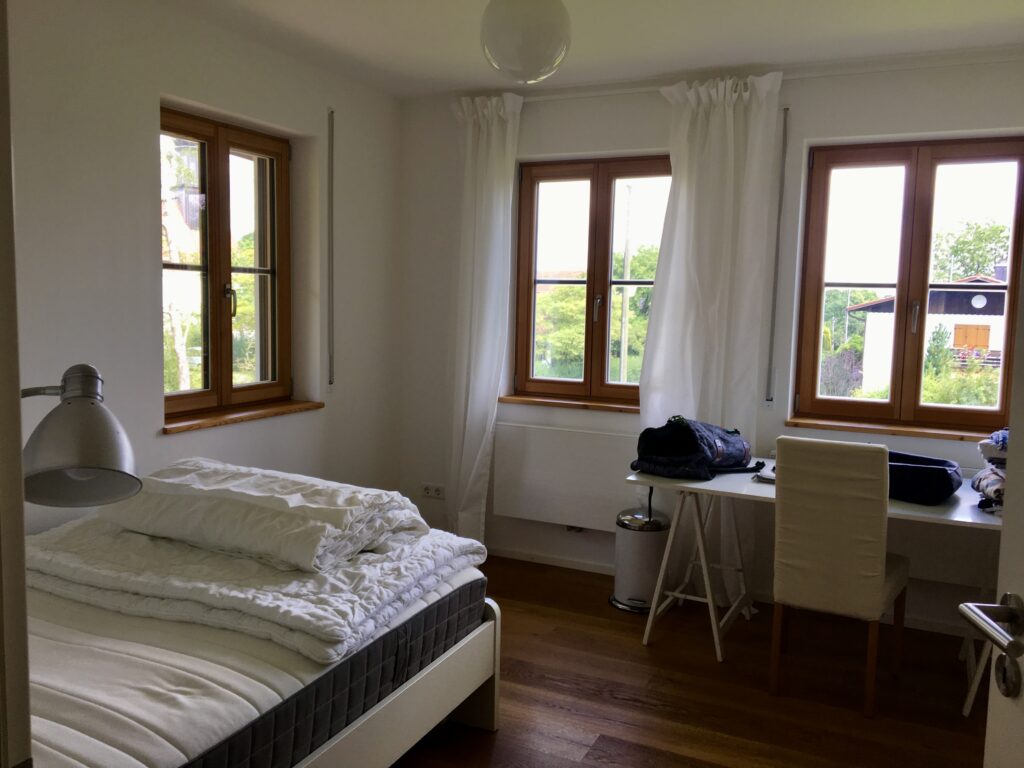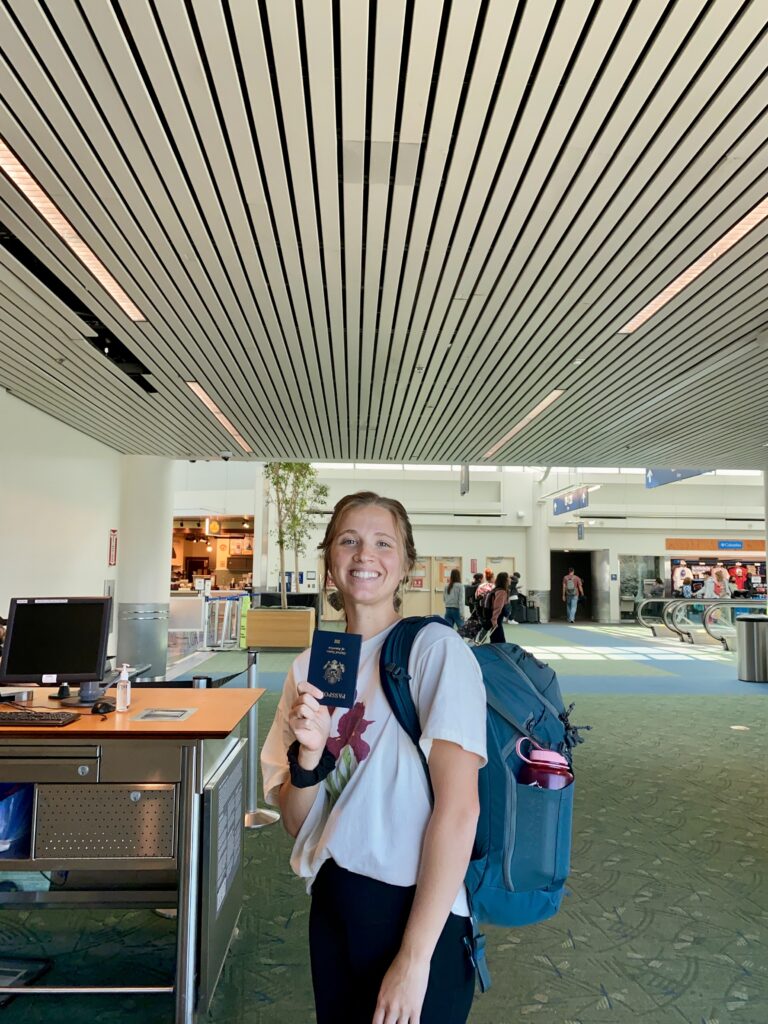
Au Pair vs. Nanny
What is an Au Pair and How is it Different From a Nanny? What Does Au Pair Mean?
A nanny and au pair have similar duties, however there are some nuances that make the difference.
The biggest difference to understand is intent. An au pair is hired to watch children but with the intent of also providing a cultural exchange and being more “a part of the family”. A nanny is hired with the focus on providing professional childcare.
Having been both, I can give you first hand insight on how it feels. I was an au pair for a year in Germany and have also been a babysitter and nanny for families in the US. I also babysat for a family in Germany other than my au pair host family.
When host families are looking for an au pair, they understand the opportunity is for a cultural exchange with childcare. Experience or knowledge is good and helpful, but not having any experience isn’t a huge red flag either. Interest in working with kids at the minimum is usually acceptable. When a family is looking for a nanny, they are usually wanting someone with experience or knowledge in children or education.
The main differences of an au pair and nanny come down to :
Au Pair:
Cultural Exchange
Flexibility and Exploration
Set End Date
Nanny:
Structured Routine
Long Term
Professionality
What is an Au Pair?
An “au pair” is a French word when directly translated means “equal to” or “on equal terms”. Keeping this in mind, an au pair should be treated as a part of the family, as opposed to a traditional employee.
Au pairs are typically between 18-30 years old, who travel to a foreign country to live with a host family and provide childcare in exchange for room, board, and a cultural exchange experience. The time frame differs with each host family’s needs, but usually ranges from about 3-12 months.
Some countries have specific visas available for au pairs, but have age limits (each country varies on the type of visa offered, do your research!). Additionally, people in this age range are usually interested in this type of arrangement.
Au Pair Schedule
Au pair schedules usually revolve around the children’s school hours and the parents working hours. Typical hours are something like Monday to Friday, 7-8am, then 3-6pm.
Because you live with the family, most au pairs help get the kids to school, starting around 7-7:30am, getting the kids to school, and then have a couple hours free while the kids are at school. You start again when school gets out, usually working until dinner time and then are off. It is a different kind of schedule than a tradition 9-5 that you need to get used to. I liked this schedule, but it took me some time to get down a routine and found what worked for me. Sometimes I would go into the city during the school hours and meet some au pair friends for coffee or lunch. Other times I just stayed home.
Worried about meeting other people? Don’t be! Check out this post on meeting friends abroad.
Living with the family you technically work for can take some getting used to. When you are finished for the day, you are still at home with the family. Sometimes a parent will work from home and then you are both home in the house together. While it takes sometime to get used to and could be awkward, with the right host family, they should make you feel comfortable and welcome, with clear boundaries.
Au Pair Duties

The primary responsibilities of an au pair typically include caring for the host family’s children, such as playing with them, helping with homework, and ensuring their well-being. In addition to childcare duties, au pairs often participate in light household chores related to the children, such as preparing their meals and keeping their living spaces tidy. Some families could ask you to do the children’s laundry.
While most tasks should be kept to only things regarding the children, there are some exceptions. For example, with my host family, I did everyone’s laundry and made dinner for everyone, but these tasks were clearly stated and I was fine with it.
All duties should be defined in the contract. If you are uncomfortable with everything, talk about it as soon as possible or negotiate.
Au Pair Benefits
Again, each arrangement varies on the au pair and the host family, but here are the standards. The host family will provide a room, bathroom, and offer a small stipend. The host family will also provide you with health insurance. All other things are negotiable and up to you and the host family. Most au pairs and host families will sign a contract outlining the expectations.

For me, I had my own room and private bathroom attached to my room in the basement. Some of my friends had shared bathrooms.
Because of the arrangement, and the inclusion of room and board, most stipends are not much. In Europe, stipends typically range between 250-400€. I was paid 300€ a month. I had a small weekly fund of money to use with the child I watched, including treats, crafts, activities, etc.. Groceries, food at the house, and meals were all included. Going out, exploring, transportation costs were all up to me.
(I highly recommend saving money beforehand.)
Some families have a car to use, will offer to pay for language classes, or for your transportation tickets. These are all things to find out and talk about when choosing a host family.
Check out my post about How To Become an Au Pair for more questions to ask your potential host family.
As an au pair, host families know you want to explore the area and country, and usually encourage traveling and will help you do so. My host family loved how much I traveled on the weekends and were clear with any dates I would have off to help me plan more adventures.
The monetary benefits are not much, and the stipend is LOW, but again, the intent is a cultural exchange. While it took an adjustment to live with a German family, I loved it. I learned so many more cultural norms I never would have picked up on just a vacation to Germany. I was able to travel to so many places and even picked up some German (aber nicht sehr gut 🙂 ).
While becoming an au pair is a great way to live in another country and explore more without paying rent, if you are wanting to make money and have a more regular schedule and arrangement, becoming an au pair may not be for you.
If you enjoy working with children, but want something a bit more stable, I would look into becoming a nanny instead.
What is a Nanny?
A nanny is a professional, hired for childcare. Usually there is a defined employee/employer relationship with clear expectations.
Nanny Schedule
Just like an au pair, nanny schedules vary, depending on the family’s needs. Most nannies have a set schedule. Sometimes you start in the morning, but sometimes you start with school pick up. If you are a nanny in the summer, you usually have the kids all day, Monday-Friday.
Most nannies are hired with a long term relationship in mind. Most families like to hire a nanny for the school year, or for the summer. Some nannies are with families for the entirety of the child’s growing years.
Nanny Duties
The duties and tasks of a nanny are similar to an au pair, but can be more general to house-needs as well. A nanny will supervise and engage in childcare, help with school, meal prep, help transport, light housekeeping, communicate with teachers or other parents, and more. A nanny is more integrated with a child’s life and daily routine, and is usually expected to provide age appropriate activities and teach a child.
Each family should clearly define their desires and should be compensated accordingly. While professional and even as an employee, nannies can still be fun, engaging and a part of the family. Additionally, a nanny can provide a cultural exchange, if they have a different experience, but it assumed or expected.
Nanny Benefits
Nannies are usually paid a full-time, set salary. Some nannies are paid per hour, and some have a salary. Depending on the duties, amount of kids, and area, hourly rates vary between $20-35/hour.
The family employing you probably won’t offer insurance. Some families require you to report your income for tax purposes and some just pay you under the table.
Some families will offer a car for transportation of the children, but not for personal use. If you have your own vehicle you might have to use your own car. If you do use your personal vehicle, sometimes a gas stipend is included in your wage.
Is a Nanny or Au Pair Position for you?
So, Nanny versus Au Pair?
A nanny can be a lucrative career for many and can provide a schedule that is very attractive to some. An au pair is a great way to experience a new country and culture. Because of the arrangement and visa stipulations, it is usually for a certain age range and for a set amount of time.
While I loved my year as an au pair, I am not in a place anymore where I want to live with the family I am working for, or be working for 300€ a month, even with room and board included.
With either position, talk about the expectations before accepting a position and be extremely clear about duties and boundaries. Never be afraid to ask as many questions as you need with a potential family and be as communicative as possible.
Have more questions about becoming an au pair? Looking for advice? Feel free to leave a comment down below, message me on my contact page, or send me an email at mariahandtheworld@gmail.com





